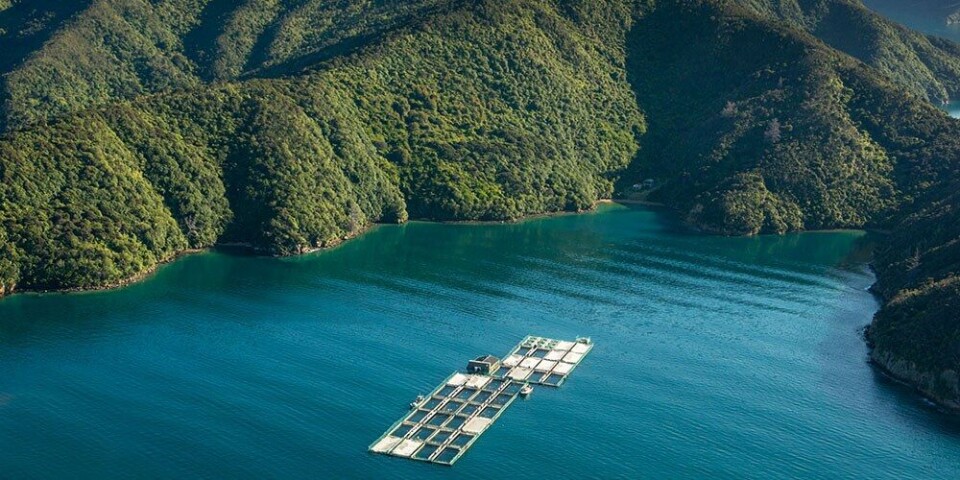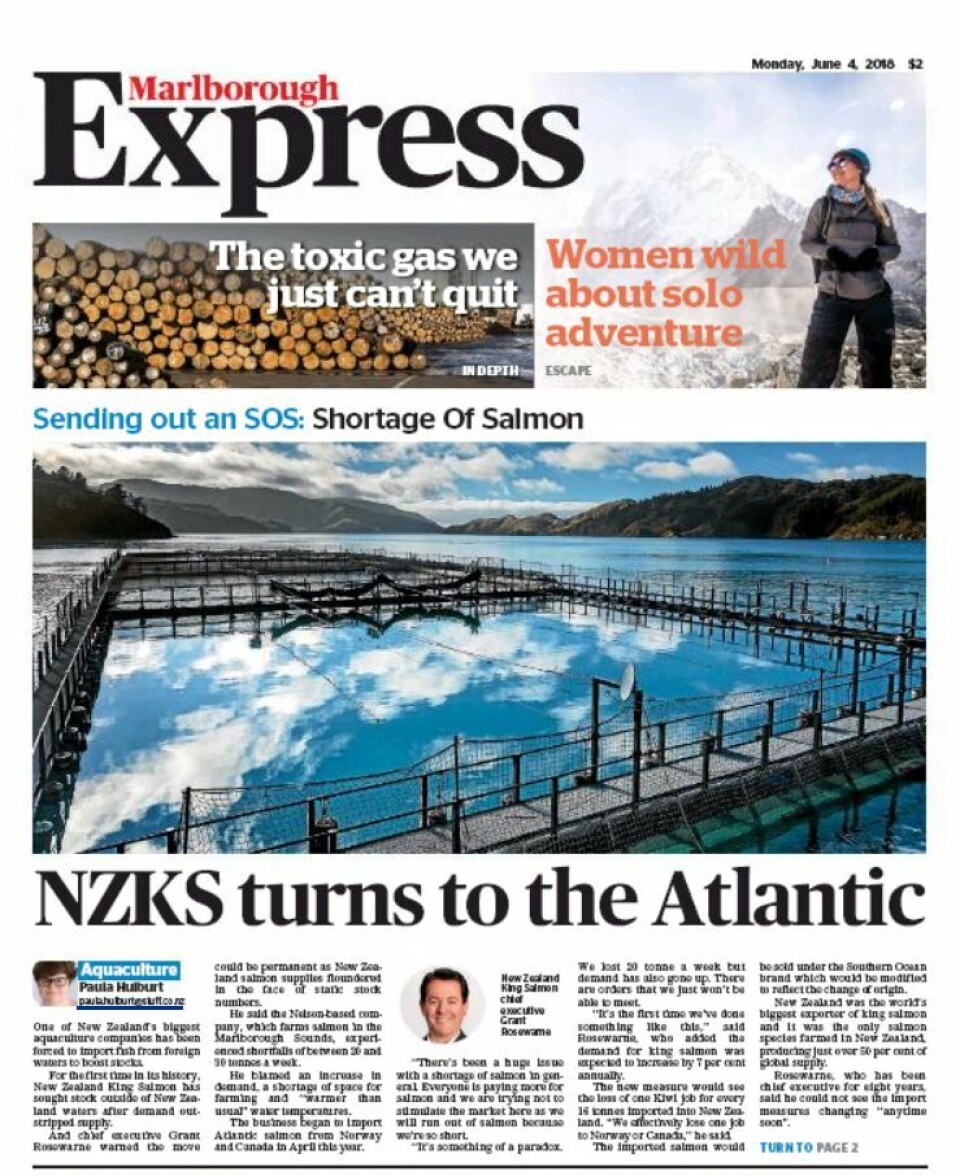
King salmon farmer turns to Atlantics to meet demand
One of New Zealand's biggest salmon farmers is importing Atlantic salmon from Canada and Norway to fulfil its orders.

New Zealand King Salmon has sought foreign fish after demand for its king salmon (Oncorhynchus tshawytscha), also known as Chinook salmon, outstripped supply.
Chief executive Grant Rosewarne told the Marlborough Express that the move could be permanent as New Zealand salmon supplies floundered in the face of static stock numbers and a refusal by authorities to allow more space for expansion.
He said the Nelson-based company, which operates eight sea farms in the Marlborough Sounds on New Zealand’s South Island, experienced shortfalls of between 20 and 30 tonnes a week.
He blamed an increase in demand, a shortage of space for farming and “warmer than usual” water temperatures.
The business began to import Atlantic salmon from Norway and Canada in April this year. “It’s the first time we’ve done something like this,” said Rosewarne, who added the demand for king salmon was expected to increase by 7% annually.
The new measure would see the loss of one New Zealand job for every 16 tonnes imported into the country. “We effectively lose one job to Norway or Canada,” he said.
Modified branding
The imported salmon would be sold under the Southern Ocean brand which would be modified to reflect the change of origin.
New Zealand was the world's biggest exporter of king salmon and it was the only salmon species farmed in New Zealand, producing just over 50 per cent of global supply.
Rosewarne told the Express he could not see the import measures changing “anytime soon”.
He said the amount needed for the domestic market alone was 705,000 tonnes per year. “There won't be any increase in salmon production but the domestic and international markets will continue to grow,” he said.
Higher mortality
Warmer water in the Sounds has led to a higher mortality rate in stock than bosses had bargained for. Rosewarne would not be drawn on exact volumes but told the Express it had not helped the supply situation. “We need 525 tonnes just to keep up, which we can't without importing.”
Rosewarne said the company would continue to push for more of their Sounds-based salmon farms to be moved to higher flow sites which could help with numbers but would not on its own be enough to stop imports.
“There's a lot less space made available for salmon farming in New Zealand than anywhere else in the world. It seems there is room for every other industry but not for salmon,” he said.
New Zealand King Salmon reported first half-year profits of $15.7 million, up 81% compared to the same time last year when profits were $8.7m.
But the higher-than-expected mortalities mean those earnings could be dented in the second half of the financial year.























































